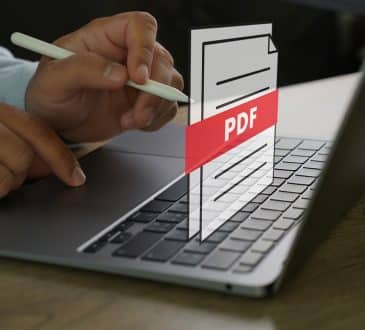The Productivity Lie

We’ve been conditioned to believe that productivity means being busy all the time and that feeling burned out by too much work gives us a kind of enviable social equity. The truth is our current productivity mindset isn’t bringing us closer to our desired outcomes. It’s keeping us from them.
Motivation is an obvious problem. Working alone in your garage restoring the vintage truck you bought twenty years ago probably doesn’t even feel like work. It’s a hobby, but it’s more than that. It’s your passion project, something that means more to you than many other things. You’re doing something you genuinely love, so you’re motivated by the joy of the work itself.
What about things we don’t necessarily want to do? That’s where productivity hacks can be useful – to help us focus and concentrate and to simulate motivation so we’re bought into the end goal. Bullet journals, frequent breaks, and ergonomic workspaces can make it easier to stick to a task we didn’t choose ourselves. See the problem, though? It’s artificial motivation. Does that matter?
Productivity is a lie that tells us goals are all that matter.
Every time I get burned out and take a step back, I re-evaluate my definition of productivity. And I always view this cycle as evidence that I’m broken in some deep, fundamental way, unable to deal with the world the way other people do. What I realize is that this recurring pattern is profoundly useful in personal growth and evolution. Humans are designed to adapt to change. Likewise, our responses to life challenges will also change as we grow, age, and learn more about what we really want. Goals give us structure and direction, and there’s nothing like the feeling of meeting one, especially a significant one. But they’re the beginning of the story, not the end.
Personal productivity is a path that measures the degree of happiness we derive from our energy output. It’s a tool that helps us understand ourselves better – evaluating and recalibrating how effective our activities are.
Productivity Obstacles
In manufacturing, productivity is measured by output divided by a unit of input (resources) needed to produce goods or services as a means of gauging business efficiency. Personal productivity is more subjective, relying on qualitative factors like priorities, purpose, urgency, and goals. It also requires us to consider the input needed for our desired results, and this is the missing link. When we ignore the needed inputs, productivity can easily become a precursor to burnout, and, what’s worse, it can become our singular source of self-worth. We use it to hide from meaningful questions about our core desires and how we want to spend our time. It can also keep us busy with unimportant tasks to avoid those that hold less intrinsic value.
You’ve read about the habits of highly productive people. The lists, goal setting, task prioritization, and scheduling rest periods are all useful tactics and I use them frequently. But at the end of the day, you’ve again got a schedule packed with tasks and no open space to reflect on why you’re doing them.
Social media tries to inveigle us into believing we’re dysfunctional. You’ve seen the reels that say if you’re not doing these five things right now, you’ll never be successful at X. And feeling overworked and overwhelmed just makes us more susceptible to that messaging.
Even if productivity hacks help us finish tasks quicker, work smarter, and maximize downtime, do we actually use that extra time to sit with a cocktail by the pool? More likely, we’re using it to come up with more productivity hacks! It’s a vicious cycle of efficiency. So filtering out everything you don’t need is a legitimate form of productivity because it clears space for what really matters – to your life or your business.
What if I told you 5 minutes of waking, conscious, intentional rest would make you feel more productive? Not meditation, not napping, and not zoning out to music; it’s intentional, mental rest, where you’re neither planning nor thinking about tasks. You’re pausing, breathing, and noticing what comes into focus. For some, 5-minutes might feel like an hour, so try a 1-minute and build from there.
Summary
What are you working on right now, and how will that bridge where you are to where you want to be next month or next year? Adding reflection to our experience with productivity brings this new sense of agency, an assurance that we have the power to use our time the way we want to. But the truth is real productivity has nothing to do with time. It’s about identity, intention, and choice.
Written by Lisa Towles.
Have you read?
Franci Neely Reflects on Her Early Days in Law.
Five Fallacies About Joining Peer Advisory Groups
LARUS CEO Lu Heng: Open, multistakeholder Internet vital for a fairer and greener world.
Reinventing Venture Capital to Accelerate Startup Growth.
Changing the Face of Business with Ben Hunt-Davis MBE.
Add CEOWORLD magazine to your Google News feed.
Follow CEOWORLD magazine headlines on: Google News, LinkedIn, Twitter, and Facebook.
This report/news/ranking/statistics has been prepared only for general guidance on matters of interest and does not constitute professional advice. You should not act upon the information contained in this publication without obtaining specific professional advice. No representation or warranty (express or implied) is given as to the accuracy or completeness of the information contained in this publication, and, to the extent permitted by law, CEOWORLD magazine does not accept or assume any liability, responsibility or duty of care for any consequences of you or anyone else acting, or refraining to act, in reliance on the information contained in this publication or for any decision based on it.
Copyright 2024 The CEOWORLD magazine. All rights reserved. This material (and any extract from it) must not be copied, redistributed or placed on any website, without CEOWORLD magazine' prior written consent. For media queries, please contact: info@ceoworld.biz
SUBSCRIBE NEWSLETTER








